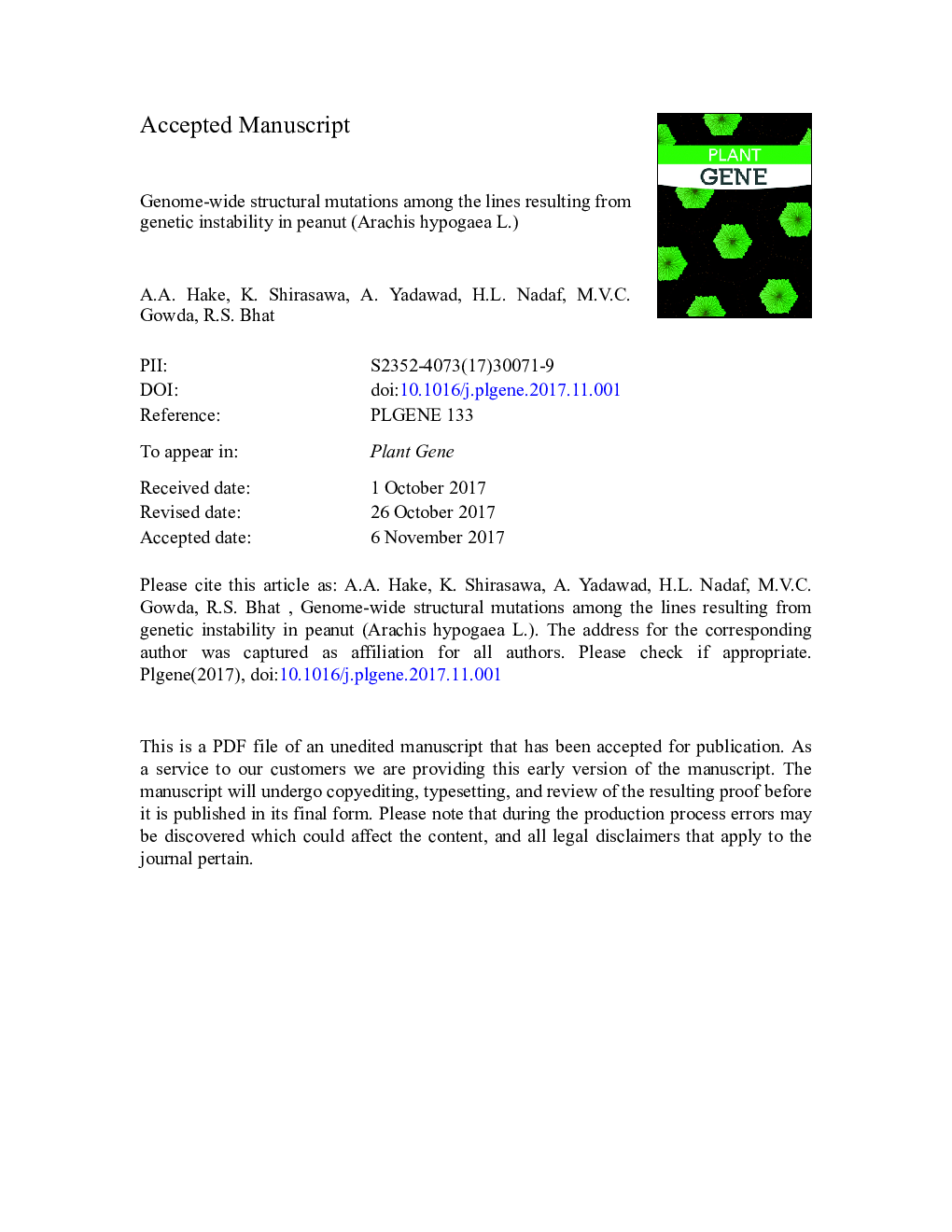| Article ID | Journal | Published Year | Pages | File Type |
|---|---|---|---|---|
| 8647736 | Plant Gene | 2018 | 26 Pages |
Abstract
Genetic instability followed by genome re-organization contributes significantly to the evolution of peanut (Arachis hypogaea L.). Dharwad Early Runner (DER), a taxonomically unique plant derived from a cross between two fastigiata varieties, showed considerably high genetic instability in a previous study. Some of the DER-derived mutants continued to show genetic instability either spontaneously or by induction with mutagens. DNA analysis among the several mutants and their derivatives for the transpositional activity of Arachis hypogaea miniature inverted repeat transposable element (AhMITE1), single nucleotide polymorphism (SNP) and copy number variation (CNV) indicated remarkably high DNA re-organization when compared to genetically stable genotypes. Some of these DNA structural variations also led to phenotypic changes in a few taxonomical, morphological and productivity traits, including resistance to late leaf spot disease. Overall, we assume that the genetic instability triggered by genomic shock due to a rare event of hybridization has resulted in enormous genome-wide DNA re-arrangements and structural mutations contributing to the evolution of peanut.
Related Topics
Life Sciences
Agricultural and Biological Sciences
Plant Science
Authors
A.A. Hake, K. Shirasawa, A. Yadawad, H.L. Nadaf, M.V.C. Gowda, R.S. Bhat,
